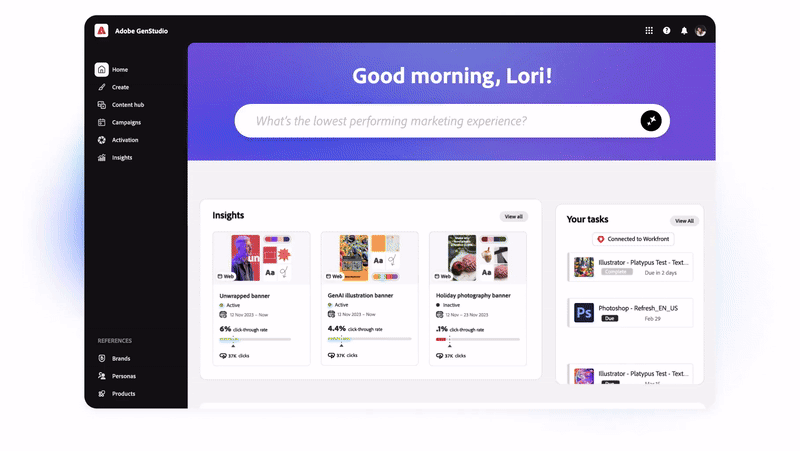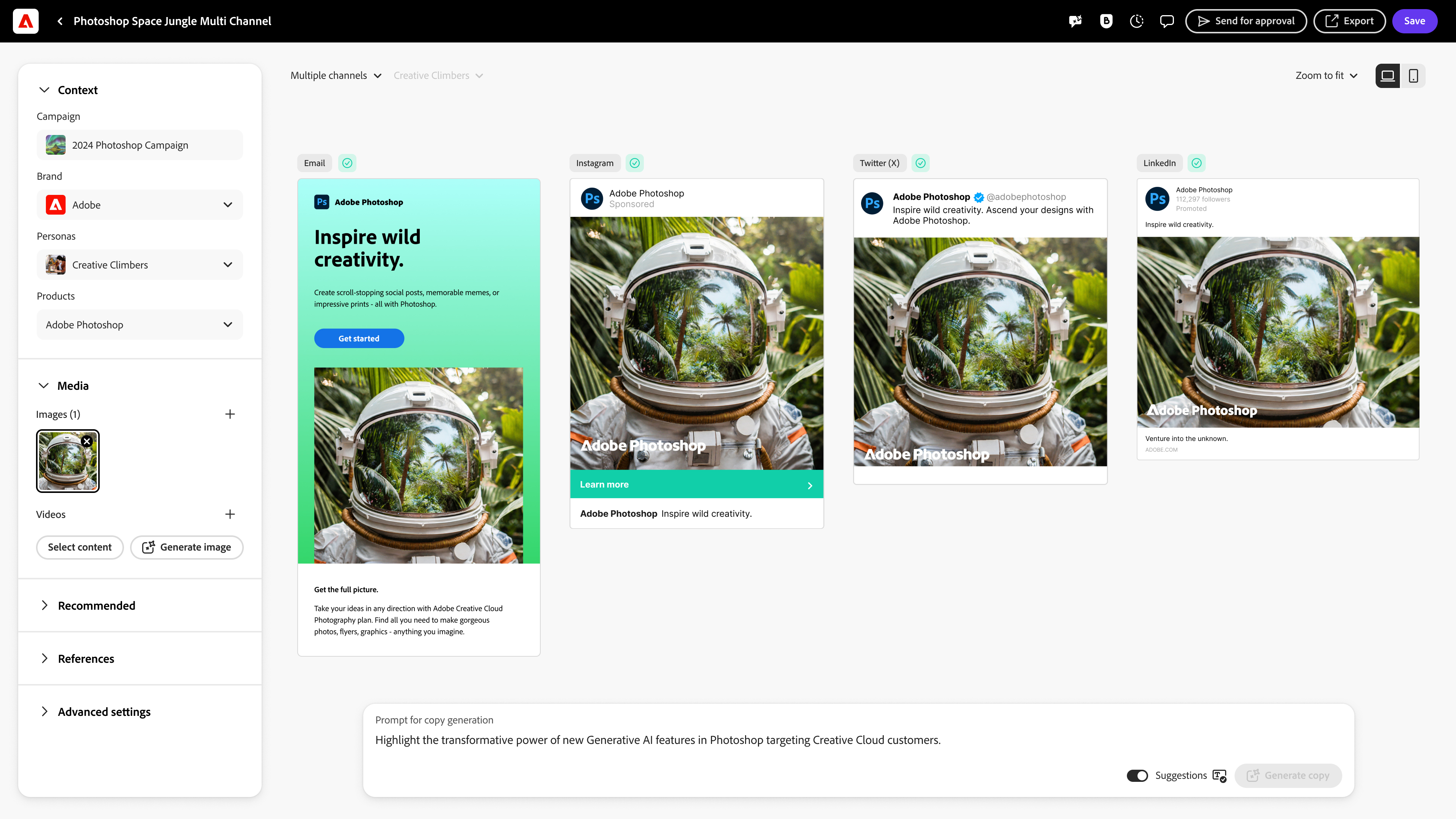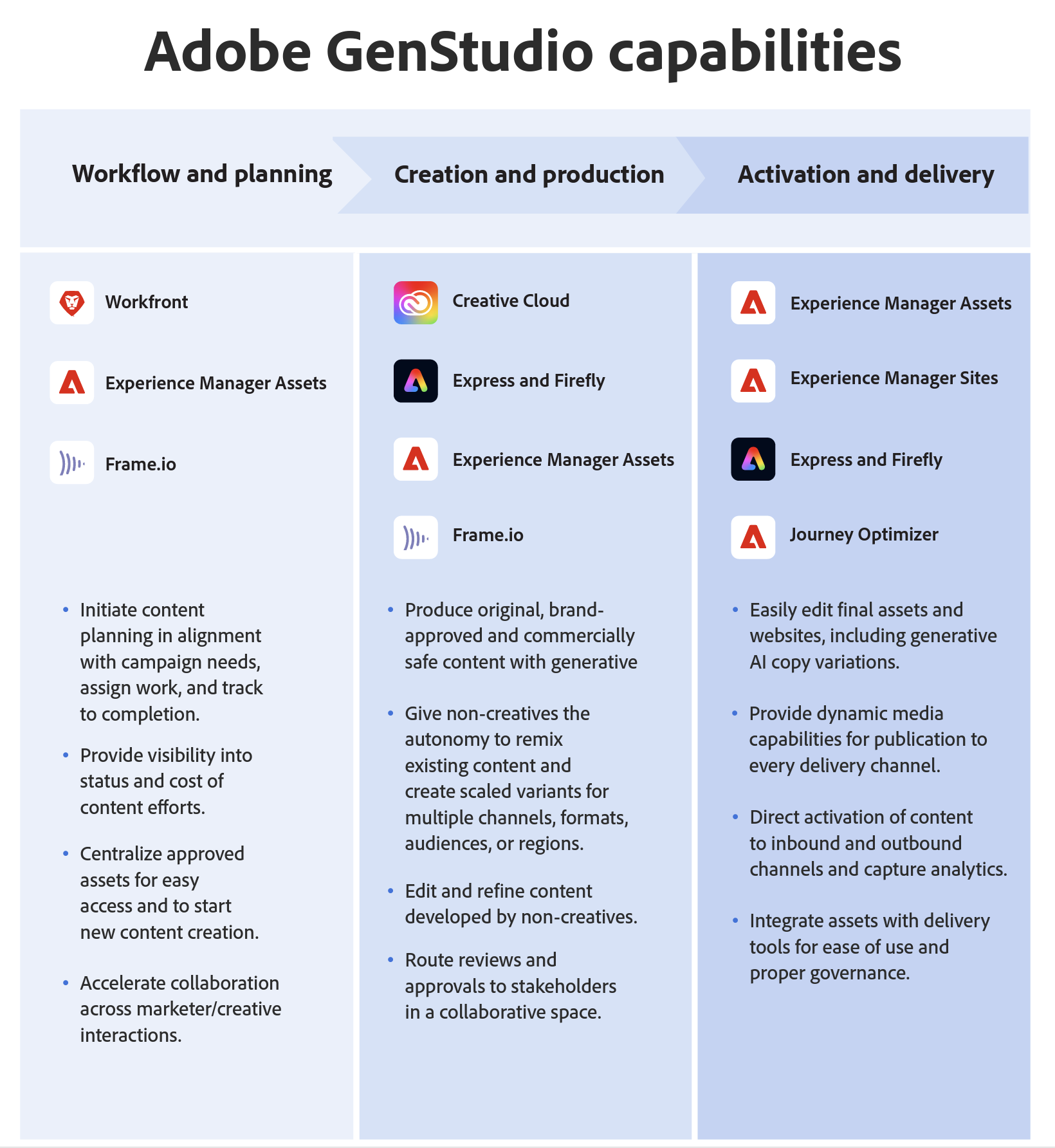Brands want to use generative AI to personalize their marketing efforts — but they are also deathly afraid of AI going off message and ruining their brand. At its annual Summit conference in Las Vegas, Adobe today announced GenStudio, a new application that helps brands create content and measure its performance, with generative AI — and the promise of brand safety — at its center.
Currently, the tool is mostly focused on helping social, paid media and lifecycle marketers that want to create social media posts, email campaigns and display ads, with support for creating entire websites coming soon.
Adobe wants GenStudio, which it first previewed last September, to be an end-to-end solution to help marketers tailor their content to different channels and audience segments. It includes tools for content creation, managing campaigns and analytics. But to generate personalized content, you need a supply chain that makes it easy to generate a lot of on-brand content — and then the tools to measure how this content performs.
“I think the majority of customers we talk to are incredibly excited about GenAI but also have a lot of trepidation about GenAI in a lot of different ways around, ‘hey, what’s the status of my data? What data am I using, the status of the models,’” Adobe’s Amit Ahuja, the company’s SVP for its Experience Cloud platform, told me. “That’s resulted in — and we just ran a survey on this — a lot of them are in just kind of this almost siloed experimentation mode with it. I think the opportunity for Adobe is: how do we bring that more directly with the right security safeguards and with all the right compliance into the tools that these people are using?”
As brands try to reach these potential customers across an increasingly large number of channels and, at the same time, try to personalize their messages, there is a lot of pressure on the overall content supply chain. That, of course, is where generative AI comes in, since it can speed up content creation dramatically.
“If you think about the amount of content required for personalization, experimentation, all the channel fragmentation, just that, by itself, will drive a massive burden and demand on the content supply chain and the business processes around that. Put GenAI on top of that, where it’s now like: ‘hey, I can now go produce a bunch more content’ and you have this kind of rapidly expanding content machinery,” Ahuja said.
GenStudio takes pieces from other Adobe enterprise services for brands like the Workfront project management platform and Journey Analytics for cross-platform insights and Experience Manager and combines that with parts of its creative tools like Adobe Express and, of course, its Firefly models. Enterprises that already use these services can connect them to GenStudio, but new users don’t need to use these tools to get started with the new service.
Having these integrations, however, means that marketers can immediately start to work with a brand’s existing assets. In the context of GenStudio, that means they can remix them with new AI-generated backgrounds to create a new Instagram post, for example. With this, a brand like Coca-Cola can use an existing image of a Coke bottle and pin that to a Firefly-generated background. Firefly and similar models wouldn’t be very good at creating that bottle with the correct Coca-Cola logo, after all.
To make additional edits, there’s a lightweight version of Adobe Express embedded right into the service.
Brands can set their guidelines in GenStudio to ensure that the content the system produces is brand-safe, both for the visual and textual content the system can create — and there is always a human in the loop, too. The tool also continuously checks that anything a user creates in GenStudio is within a brand’s guidelines.
What’s also important here is that brands can bring in their style kits and create custom models based on their existing assets. Adobe is actually using a set of new APIs to power many of these capabilities here that are also now available to third-party developers.
For data-driven marketers, the integrated analytics may actually be the highlight of this new service. These insights start at the campaign level, but users can drill down to minute details and see why a certain campaign performed the way it did — and then adjust their next ad or social post based on that.



